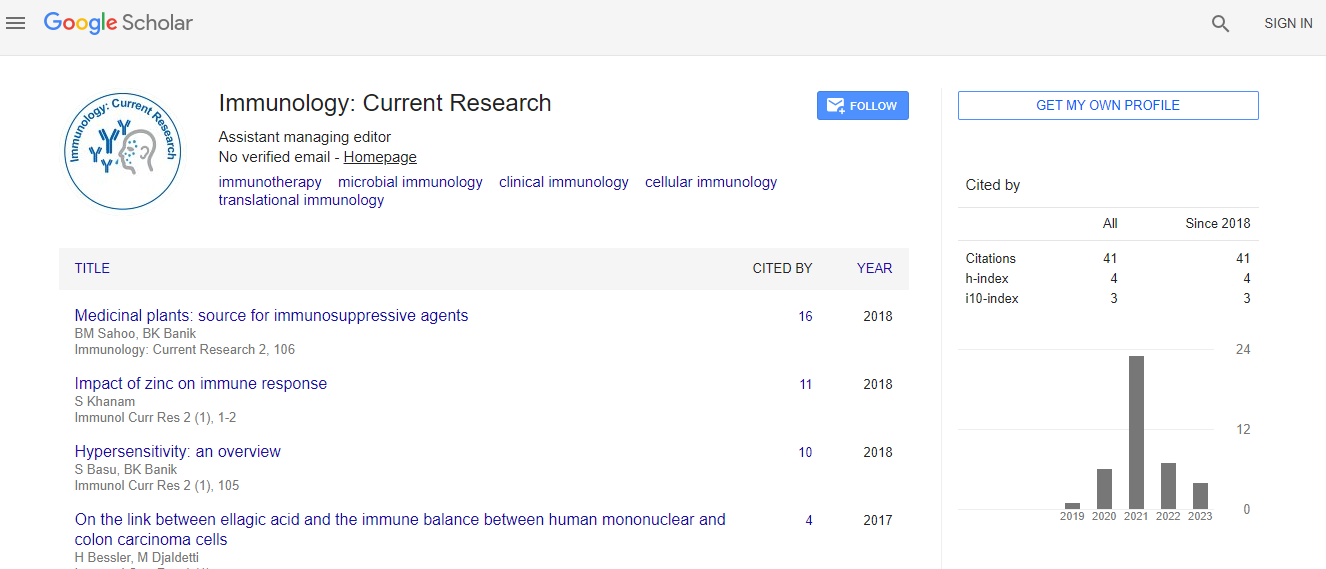The Role of Cytokine Signaling Pathways in Immune Regulation and Disease Pathogenesis
*Corresponding Author:Received Date: Jan 01, 2025 / Accepted Date: Jan 31, 2025 / Published Date: Jan 31, 2025
Citation: Holo Y (2025) The Role of Cytokine Signaling Pathways in ImmuneRegulation and Disease Pathogenesis. Immunol Curr Res, 9: 243DOI: 10.4172/icr.1000243
Copyright: © 2025 Holo Y. This is an open-access article distributed under theterms of the Creative Commons Attribution License, which permits unrestricteduse, distribution, and reproduction in any medium, provided the original author andsource are credited.
Abstract
Cytokine signaling pathways play a pivotal role in immune regulation and disease pathogenesis. These signaling
networks orchestrate the immune response by mediating communication between immune cells, coordinating
inflammation, and determining the outcome of infections, autoimmune diseases, and cancer. Cytokines, such as
interleukins, interferons, and tumor necrosis factors, bind to specific receptors on target cells, triggering intracellular
signaling cascades that influence immune cell activation, differentiation, and migration. Dysregulation of cytokine
signaling can lead to a range of pathological conditions, including chronic inflammation, autoimmune disorders, and
malignancies. Recent advances in cytokine biology have highlighted the complex interplay between cytokines and
immune cells, offering new insights into disease mechanisms and therapeutic opportunities. This review explores
the key cytokine signaling pathways involved in immune regulation and their implications in disease pathogenesis.
Understanding the molecular mechanisms of cytokine signaling can lead to the development of novel therapeutic
strategies for immune-related diseases.

 Spanish
Spanish  Chinese
Chinese  Russian
Russian  German
German  French
French  Japanese
Japanese  Portuguese
Portuguese  Hindi
Hindi 
